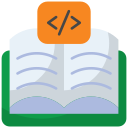
Benefits of Using Open Source for Learning Code
Open source has revolutionized how people approach code and technology education. By offering freely accessible materials, collaboration opportunities, and real-world project experience, open source tools and communities empower learners everywhere to acquire skills more effectively. This page explores why embracing open source resources is so valuable for anyone seeking to master the art of coding.
Global Reach and Participation
Open source initiatives welcome learners from every part of the globe. Anyone can join online forums, contribute to repositories, or access documentation, regardless of their geographic location. This broad reach ensures that coding knowledge is not confined to select institutions or privileged communities but is instead distributed worldwide. As a result, people from various backgrounds can bring unique ideas and problem-solving approaches, enriching the global community and making the open source ecosystem even more vibrant. This interconnectedness helps learners to gain exposure to different perspectives and prepares them to solve problems in a truly international context.
Minimal Financial Barriers
One of the most significant advantages open source offers is reducing or eliminating financial obstacles. Traditional educational programs, paid coding bootcamps, and proprietary software licenses can be expensive, making it challenging for many to access high-quality learning materials. Open source provides free alternatives, enabling learners to experiment with real-world tools and code without worrying about costs. This affordability allows anyone with motivation to begin learning, practice new skills, and build a portfolio—all crucial steps in developing as a programmer. Moreover, open source often leads to a sense of ownership and empowerment that expensive tools rarely foster.
Diverse and Flexible Learning Paths
Open source learning is inherently flexible and customizable. Unlike rigid curricula, open source allows you to choose your own journey, whether you want to master a specific programming language, contribute to a real project, or explore new technical domains. Learners can follow their curiosity, select projects that interest them, and progress at their own pace. This level of flexibility encourages sustained motivation and deeper understanding, since people are more likely to engage with materials that resonate with their goals and interests. Over time, this diversity in available paths produces programmers who are both adaptable and self-directed.
Community Support and Collaboration
In the open source world, mentorship is readily available from people who have walked the same learning path. Contributors and experienced programmers often spend their time answering questions, reviewing code, and suggesting improvements. This peer-to-peer mentoring accelerates the learning curve and helps newcomers feel welcome and valued. Unlike formal education, where access to instructors may be limited, open source provides multiple channels for guidance—from online forums to instant messaging communities—ensuring learners get feedback quickly and can iterate effectively on their work.

Real-World Project Experience
Many open source projects follow industry best practices, including version control, code reviews, testing, and project management tools. By contributing to these projects, learners develop a deep understanding of essential workflows and standards that are widely used across the technology sector. This exposure ensures they’re not only learning how to code but also how to write maintainable, efficient, and reliable software. The familiarity with these practices gives learners a head start in their future careers, making them more attractive to employers and better prepared to tackle complex challenges in the workplace.

